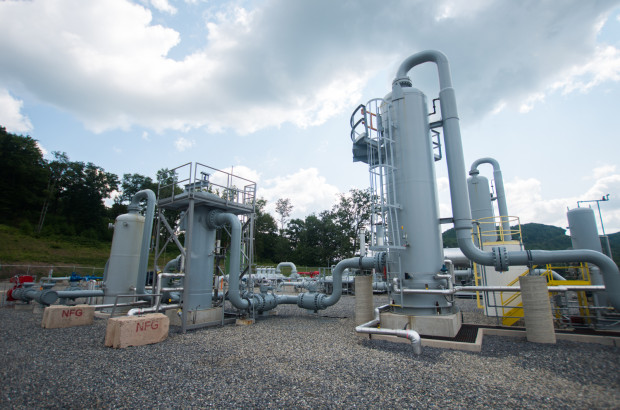New methane rules coming for Pennsylvania's oil and gas industry
Pennsylvania regulators are soon planning to introduce new regulations to reduce methane emissions from the oil and gas industry, despite expectations President-Elect Donald Trump may seek to roll back new federal rules.
Methane is the main component of natural gas and a potent greenhouse gas that contributes to global climate change.
The state Department of Environmental Protection (DEP) is expected to unveil new general permit requirements for Marcellus Shale well pads at a meeting of its Air Quality Technical Advisory Committee on December 8th. A broader regulatory package, designed to curb methane leaks from existing sources, is expected in early 2017.
“A lot of these issues now revert to the states to take action,” says Matthew Stepp, policy director for the environmental advocacy group, PennFuture. “The environmental community is rightly concerned at the federal government reversing course.”
A bill introduced last summer in the state Senate aims to prevent the DEP from creating new methane regulations that would be more stringent than those put forth by the U.S. Environmental Protection Agency. Stepp expects the measure will come up again next session, but thinks it could become a moot point if there is a reversal of federal policy under Trump.
Whether that bill moves forward or not, Stepp anticipates the state’s new methane rules will be vigorously challenged. He points to the bitter fight this year between Governor Tom Wolf’s Democratic administration and the GOP-led legislature over new drilling regulations.
“In Pennsylvania, we have a General Assembly that has made it very clear it will do everything it can to stop new environmental regulations or roll back ones that are already in place,” says Stepp. “The battle will be at both the state and federal level.”
The industry says the new methane rules are expensive and unnecessary. Stephanie Catarino Wissman, of the Associated Petroleum Industries of Pennsylvania, says drillers are already highly regulated at both the state and federal level.
“Look, we’re not opposing being regulated,” Wissman says. “But why propose regulations that have minimal environmental impact? The cost far outweighs the benefit.”

















